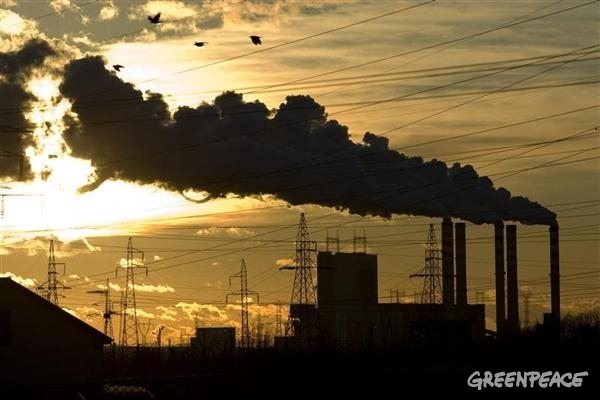Blogpost by Jeremy Tager, November 24, 2011
Corporations that bear the most responsibility for contributing to climate change emissions – and then profiting from those activities – are campaigning to increase their influence over international negotiations like the upcoming COP17 meeting in Durban. At the same time, these carbon-intensive industries are working to defeat progressive legislation on climate change and energy around the world.
Our new report, ‘Who’s holding us back – How carbon-intensive industry is preventing effective climate legislation,’ reveals that our biggest barrier to achieving successful, progressive policies at the international, national, and even sub-national levels is the powerful carbon-intensive industry with its vast army of lobbyists, front groups, and profound access to and influence over decision-makers .
The familiar claims of the big polluters that action on climate is too costly and too damaging is wrong. Ambitious action on climate change is not a hurdle to fixing our economic ills – it’s exactly what’s needed.
You don’t have to take our word for it. Earlier this month the rather conservative International Energy Agency (IEA) released a report that included an urgent call for quick action and argued that addressing climate change and moving to a clean energy economy is not only an environmental imperative but also good fiscal policy:
The IEA was blunt. “Rising fossil energy use will lead to irreversible and potentially catastrophic climate change.… we are on an even more dangerous track to an increase of 6°C [11°F]…. Delaying action is a false economy: for every $1 of investment in cleaner technology that is avoided in the power sector before 2020, an additional $4.30 would need to be spent after 2020 to compensate for the increased emissions.” (From the 2011 World Energy Outlook [WEO] release summarized here at Think Progress).
At the same time analysis by the European Commission [i] and several independent research institutes [ii] indicate that it would now be in Europe’s economic interests to introduce stronger climate legislation. In fact, numerous examples now exist that prove that fighting climate change creates a stronger economy like the Regional Greenhouse Gas Initiative in the US which is creating jobs, lowering electricity rates and at the same time lowering greenhouse gas emissions.
Australia has taken an important step with the introduction of its clean energy legislation, but the incredibly generous compensation provisions for big polluters and the refusal of the Gillard Government to eliminate billions of dollars in annual subsidies to the fossil fuel industry remain as significant impediments to the kinds of economic transition that is needed. They also highlight the profound influence the big polluters have over our political ‘elite’.
The polls show that the public understands the issues. They distrust the big corporations. They distrust the relationship between the big polluters and government and they support swift action to address climate change and shift to renewable energy. [iii]
So what’s holding us back?
‘Who’s holding us back,’ shines a light on how these actors have undermined or are attempting to undermine progressive climate policies in Europe (e.g., lobbying against a 30% emissions target for 2020), the US (e.g., successfully killed climate legislation in the Senate, opening up new areas to oil extraction), Canada, and South Africa.
This research shows beyond a doubt that there are a handful of powerful polluting corporations who are exerting undue influence on the political process to protect their vested interests.
In this report, we document the tricks of the trade that polluting corporations use to pull the strings of our politicians and mislead the public. We expose the influence pipelines that see these companies play not only our leaders, but entire countries against each other to hold back action on the climate.
Our governments must work with and learn from the business sector but we will not avoid irreversible climate change impacts unless they listen to and act on the behalf of their citizens. In the run up to COP17 its time for the politicians that hold the fate of our economy and environment in their hands in Durban to listen to the people, instead of polluting corporations like Shell, Eskom and Koch Industries.
Read: Who’s holding us back – How carbon-intensive industry is preventing effective climate legislation



